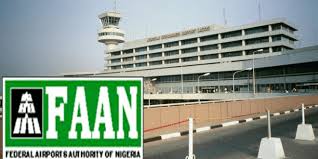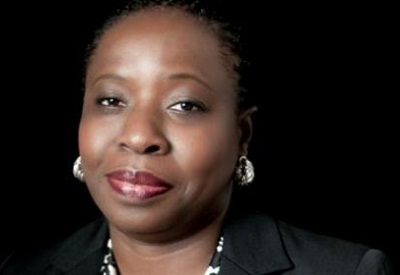E-Business
Experts Tie Broadband Penetration to Regulatory Efficiency
Experts have opined that regulatory efficiency holds the key to broadband penetration in the telecom sector.
This is as Nigeria ranks tops in the foreign direct investment (FDI) inflow in sub-Sahara Africa in the IT sector hitting an all time high of $25bn in 2012.
Authors Ronda Zelezny Green and Sonia Jorge, in their paper: “Regulators Hold the Key to Mobile Broadband Development in Africa Africa & Middle East Telecom Insider / Vol. 4, No 7 – October Edition;” stated that despite the glut of fibre transcending the African continent, broadband penetration has not hit a high note.
The duo noted that “while no one regulatory body has been free of missteps in this arena, a case study from Kenya provides examples of regulator actions that are helping to move their mobile broadband agendas forward in important respects.”
Kenya currently attracts more international IT vendors, who make the country their African hub.
Bitange Ndemo, Kenya’s permanent secretary, in the ministry of Information recently launched a grand project called Konza City which the country calls its’ version of the US Silicon Valley; a technology district with “office buildings for technology companies and innovation labs, as well as manufacturing plants, artificial rivers and eventually homes, schools, churches and mosques.”
The government also acquired a “2,000 hectare plot of land for the project about 60 kilometres from the capital, Nairobi and is now seeking to hire a master developer to find investors and arrange the construction. The project will come together in two phases and will take about 20 years to complete.”
Ndemo said he was inspired following a visit to the actual Silicon Valley, in California.
Both Green and Jorge said the aim of their “Insider is to highlight best practices that regulators in Africa should consider as they change regulations that will play a large role in determining the levels of access to mobile broadband on the continent through the end of the decade.”
Before now, Nigeria’s rise to the top ladder of Africa mobile market has been attributed largely to regulatory efficiency and transparency in business-to-business dealings. Nigeria’s success in its first open mobile licencing auction in 2001 had greatly led to the rush in FDI inflow into the nation’s cofers.
“While the arrival of the undersea cables has already made a discernible impact in many of the countries that have been able to connect to these lines, the fate of the evolution of mobile broadband in Africa undoubtedly rests with regulators in the markets where the cables are or could be deployed,” said Green and Jorge.
Nigeria currently runs three private undersea cables live: MainOne, Glo1 and WACS. Their availability has greatly enhanced bandwidth capacity, but they are greatly under-subscribed owning poor infrastructure to uplink the fibre to up-country from the shores of Lagos.
Ms. Funke Ope, CEO of MainOne last year blamed big telecom operators who refuse to share infrastructure to the fibres to be linked to most of the country. Nigeria lacks public investment policy on telecom infrastructure.
E-Business
NBS Votes N35m for Cybersecurity after Cyber Attack
National Bureau of Statistics (NBS) has allocated N35 million in its 2025 budget for enhancing cybersecurity measures, following a cyber attack on its website on December 18, 2024.

Shortly after releasing its crime experience and security perception survey, the NBS website was compromised.
The bureau had reported that Nigerians paid N2.23 trillion in ransom between May 2023 and April 2024.
In addition to bolstering cybersecurity, the NBS’s N9.85 billion budget includes several significant initiatives.
These consist of N500 million for the Labour Force Survey, N80 million for the production of the Consumer Price Index, and N60 million for compiling quarterly GDP reports.
Other notable allocations are N55 million for the National Agricultural Sample Survey, N50 million for monitoring the 8-Point Agenda, and N45 million for service delivery capacity building.
Additionally, there are projects like N15 million for demographic statistics and N9 million for the Annual Abstract of Statistics.
Credit: newsdigest
E-Business
World Bank Raises Nigeria’s NIN Target to 180m
World Bank has raised Nigeria’s target for National Identification Numbers (NIN) issuance under the Digital Identity for Development (ID4D) project from 148 million to 180 million, reflecting confidence in the country’s progress despite earlier setbacks.

The ID4D project, launched in February 2020 with a $430 million budget, aims to establish an inclusive digital identity system to facilitate access to services, financial inclusion, and participation in the digital economy.
Nigeria has gotten $228.59 million from the $430 million earmarked for the Digital Identity for Development (ID4D) project, which was meant to facilitate the enrolment of 148 million National Identification Numbers by June 2024.
Nigeria failed to meet the enrollment target of 148 million by June 2024, and the World Bank agreed to extend the $430 million facility for the project until 2026.
In a new document detailing the terms of the restructuring, the World Bank noted that the project disbursement rate stood at 53.16 per cent as of November 2024.
The project’s total financing amounts to $430 million equivalent, $115 million of which are from the World Bank’s IDA, $100 million equivalent from the French Development Agency (AFD), and $215 million equivalent from the European Investment Bank (EIB).
The bank disclosed that, so far, 53.16 per cent of the fund has been disbursed but added that Nigeria has made significant progress toward fulfilling the final disbursement condition, which is the amendment of the NIMC Act to promote an inclusive and non-discriminatory legal and regulatory framework.
According to the latest restructuring document, the new target is part of a two-phase extension plan to support Nigeria in completing critical project milestones and expanding its reach to underserved populations.
The National Identity Management Commission (NIMC) has issued 115 million NINs as of October 2024, a significant achievement but still shy of the original June 2024 target.
The World Bank emphasised the importance of closing the existing gap, particularly for vulnerable groups such as women, persons with disabilities, and disadvantaged communities.
To accelerate progress, Nigeria secured a six-month extension earlier this year to design and launch a new national identity management system built on open-source, scalable, and interoperable architecture. Having met this condition, a second-stage extension for an additional 24 months is now proposed, pushing the project’s closing date to December 2026.
The restructuring also prioritises legal reforms, including amendments to the NIMC Act and the introduction of critical bills to bolster Nigeria’s digital economy.
The NIMC Act amendment, which has already passed two readings in the National Assembly, aims to create a non-discriminatory regulatory framework, with final approval expected by February 2025.
E-Business
Ozi Launches to Redefine $460Bn Global Package Delivery Market
Ozi (www.ozionline.com), a pioneer community-driven delivery app, launches, offering users a new way to send packages and earn extra cash.

L-r: Co-Founders of Ozionline.com: Ikenna Ani (CEO), Azubike Augustine (COO) and Engr. Christian Chime (CTO)
By connecting people traveling with those needing package delivery, Ozi turns everyday trips into profitable opportunities, aiming to disrupt the global parcel delivery industry, also known as the Courier, Express, and Parcel (CEP) market, currently valued at around $460 billion.
Imagine this scenario – You’re traveling to Abuja from Lagos and have empty space in your car. With Ozi, that unused capacity can earn you extra cash by delivering a package along the way. Or maybe you’re a small business owner who needs to send a package to another state but balk at the high cost of courier services.
With Ozi, you can find a verified traveler heading in the right direction to handle your delivery, Engr. Christian Chime, Ozi’s co-founder and CEO, said during the startup launch held at Four Point by Sheraton, Victoria Island, Lagos.
“Why travel empty when you can earn?” asks Engr. Chime said. “Ozi allows travelers to make the most of their journeys while helping others get their packages delivered with ease.”
“This simple yet powerful idea leverages the daily movements of millions of Nigerians to create a logistics network that is fast, affordable, and efficient.
“Ozi’s unique approach leverages the everyday movement of travelers to bridge this gap, creating a system where everyone benefits”.
He said that the choice of Nigeria as the first launch-location for Ozi was due the potential the country holds in the parcel delivery sub-sector.
“Actually, we had the opportunity to launch OZI in another country outside Nigeria but for our thrust in the Nigerian dream and its potentials made us choose the country as the first to witness Ozi’s innovation”, Engr. Chime said.
“Travelers can now monetize their journeys by delivering packages along their routes, while senders gain access to an affordable and convenient alternative to traditional courier services”.
Ozi combines convenience, innovation, and community to deliver a win-win solution for Nigerians. From quick intra-city deliveries to long-distance trips, Ozi offers an affordable, efficient solution for all.
Whether you’re a traveler looking to earn on your trips or a sender seeking a reliable delivery option, Ozi offers a solution that works for everyone.
In the words of Azubuike Augustine, the co-founder and Chief Technology Officer of Ozi, “Ozi’s mission goes beyond simplifying package delivery. The app represents a broader effort to create shared value for all stakeholders in the logistics process.
“By connecting senders and travelers, Ozi creates a win-win scenario where costs are reduced, trust is built, and income opportunities are created”.
“Ozi prioritizes safety and transparency. Every user, whether sender or traveler, undergoes a comprehensive verification process that includes ID checks and phone number authentication. This ensures that all participants in the system are trustworthy and accountable”.
To enhance security further, the CTO said that Ozi offers real-time tracking for all transactions. Senders can monitor their packages throughout the delivery process, ensuring peace of mind. For high-value items, optional insurance coverage provides an added layer of protection, reinforcing Ozi’s commitment to reliability.
“At Ozi, we understand that trust is critical in logistics,” the Azubuike added. “That’s why we’ve built a platform where every step is designed to safeguard both the traveler and the sender.”
“Ozi is more than an app; it’s a community where everyone wins,” said Ikenna Ani, co-founder/COO of Ozi.
“From today, travelers across the globe can sign up through www.ozionline.com and start making every trip count”, he said. “We have put measures in place to ensure only genuine and verified travelers or senders use the platform. Security is primary for us”.
Ikenna added that the app will be released on Google Play Store and Apple (iOS) on January 1, 2025. Ozi Live on Instagram | Facebook.

 E-Business3 days ago
E-Business3 days agoNBS Votes N35m for Cybersecurity after Cyber Attack

 News3 days ago
News3 days agoEkeh, Zinox Group Founder Urges Entrepreneurs to Prioritise Integrity, Due Diligence

 Uncategorized3 days ago
Uncategorized3 days agoNigerian Airports to Get Mobile Courts to Try Unruly Passengers

 E-Financial3 days ago
E-Financial3 days agoAfDB to Release $2.2Bn Nigerian Agro-Industrial Fund from 2025

 Broadcasting2 days ago
Broadcasting2 days agoAfrobeats and Amapiano Lead Africa’s Musical Revolution

 Telecom3 days ago
Telecom3 days agoNCC Dismisses Rumours of Telecom Tariff Hike in January

 News3 days ago
News3 days agoSanctions on Air Peace, Other Were for Consumer Protection Infractions, Not Safety- NCAA

 E-Financial3 days ago
E-Financial3 days agoNGX Fines 20 Firms N255.53m for Financial Statements Filing Default

























